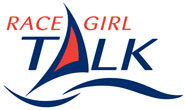Food for Fitness
A while ago, I posted about my discussion from Harry Legum of Annapolis Sailing Fitness. During that discussion, Harry recommended the book Food for Fitness by Chris Carmichael. I found it an interesting read — here is an outline of the topics along with some key things that I learned:
Chris Carmichael is a cyclist who loved to race, but didn’t have a lot of money. He experimented to figure out how he could get the best nutrition for optimal athletic performance without spending a lot of money. That lead him to become a cycling coach — eventually for Lance Armstrong.
Throughout this book, Carmichael walks the reader through various topics to show how to develop a strategy about how many calories to take in for optimal athletic performance. This is dependent on what part of your training cycle you are in. He then shares nutritional topics to help optimize the calories that you are eating.
WARNING: This book is written for pretty hard core athletes. Calorie intakes could be pretty high. (Read as — don’t follow the eating plan in this book unless you are also following the types and levels of exercise shared in this book. Otherwise, this could just be a method for weight gain).
- What it means to be an athlete;
- Food for Fitness
- Eat Right to Train Right
- Straight Talk about Calories
- Straight Talk about Exercise
- Understanding Caloric Intake
- Periodization – breaking the year into a series of segments to provide a road map for levels of training
- Foundation — Lay the groundwork & build cardio capacity
- Preparation — Increase intensity of work outs. Gain power in your sport (this takes it beyond just the gym).
- Specialization — this is when you’re your strongest at your highest level of performance. This is the time when you should be competing in the event(s) you’ve been training for. Probably 12 weeks max.
- Transition — Relax & recuperate
- Carmichael Nutrition Program
- The Best Fuels for the Job
- Making the right choices — Great references for nutrient density & serving sizes.
- Carbs (& low carb diets) — You need carbs to be a successful athlete. This section walks you through empty carbs & high quality carbs. Carmichael also shares information about the dangers of low carb diets.
- Protein — Value of protein to the body and helpful sources of protein. This includes information for vegetarians.
- Fats — Value of fat to enable complete nutritional intake
- Vitamins & Minerals — Importance of vitamins and food sources where you can get them.
- Water — OK, the value of water in sports may seem pretty obvious. But, in this section, Carmichael also covers the impact of water on the body, electrolytes, energy drinks, and protein drinks — along with when they are most valuable to the body.
- Fueling up for Performance (before, during, & after) — pretty much like it sounds — what types of foods to eat when.
- Sports nutrition for all angles
- Adolescents — Includes a section with recipes for easy & yummy breakfasts that adolescents will probably eat.
- Female athletes — Includes sections on pregnancy, bone health, energy imbalance, eating disorders (more common than you think) and amenorrhea (menstual abnormalities).
- Older athletes — Changes in the body & its nutritional needs with age.
- Eating on the Go — Great comparisons of portion size, nutitional value of fast food, and suggested snacks for on the go.
- Recipes, Training Programs, Meal Plans, and More — Over 100 pages of recipes, training programs, and meal plans (yum).


